
News

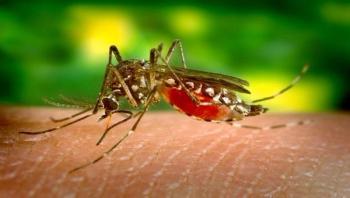
Cross-sectional surveys of mosquito abundance carried out in the subtropics and tropics are meant to give researchers an indication of the risk of a dengue virus outbreak in any given area. This type of entomological monitoring, however, is not a good proxy for dengue risk, researchers report this week in PLOS Neglected Tropical Diseases. Comparison of cross-sectional measures of mosquito density to longitudinal measures demonstrate the limitations of periodic entomological monitoring as households with exposure to Ae. aegypti may be misclassified as unexposed at any single survey visit.


Portland State University researchers have found that only about half the genes in a specific virus affecting single cell organisms is needed to infect a host. This means the virus can undergo major mutations without losing its ability to survive and infect. The research, headed by PSU biology professor Kenneth Stedman, shows how resilient and stable viruses can be. It also gives new insights into the structure of HIV and other viruses, how they are made and the challenges of fighting them.

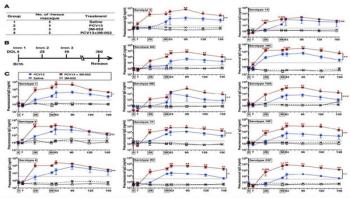
Newborns are highly vulnerable to infections and don't respond optimally to most vaccines because their young immune systems typically mount weak antibody responses. Now, researchers at Boston Children's Hospital report achieving strong vaccine responses in newborn animals, including monkeys -- the final preclinical model before human trials -- by adding compounds known as adjuvants that boost the immune response. In two simultaneous papers, they also describe improved adjuvant formulations that could reduce side effects.

The parasite that causes deadly sleeping sickness has its own biological clock that makes it more vulnerable to medications during the afternoon, according to international research that may help improve treatments for one of Africa's most lethal diseases. The finding from the Peter O'Donnell Jr. Brain Institute could be especially beneficial for patients whose bodies can't handle side effects of toxic treatments used to eradicate the parasite. By knowing the optimal time to administer these medications -- which can be fatal -- doctors hope to reduce the duration and dosage of the treatment and save more lives.
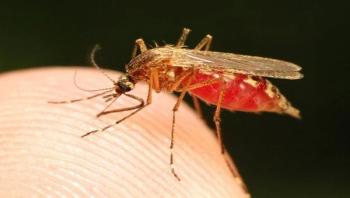
A first-of-its-kind mouse model could lead to an understanding of how cerebral malaria infection leads to the development of epilepsy in children and to the prevention of seizures. The model - a way for researchers to simulate the effects of malaria in children by using mice - was developed in a collaboration between researchers at Penn State’s colleges of medicine, engineering, science and agriculture.

A fungal biopesticide that shows promise for the control of bed bugs is highly effective even against bed-bug populations that are insecticide resistant, according to research conducted by scientists at Penn State and North Carolina State universities. The study suggests that Aprehend, a mycoinsecticide developed at Penn State, likely will provide an important new tool for managing bed-bug infestations, which have surged in recent years.

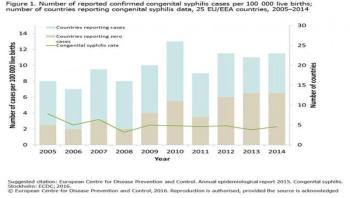
Transmission of infections with HIV, hepatitis B, syphilis or rubella from mother to child before and during birth as well as in infancy still occur across Europe, despite existing prevention methods. A new ECDC report outlines the cornerstones for effective antenatal screening programs across the EU/EEA countries.

This year's state of the industry report for the operating room, with data provided through an online survey of ICT readers who work in surgical services, is designed to offer a snapshot of the key issues and challenges relating to budgets, resourcing and workloads, as well as ongoing shortages in time, personnel and educational opportunities.


Purdue researchers are developing an integrated biosensing platform aimed at detecting and monitoring mosquito-borne diseases faster and cheaper than current methods, to aid in preventing virus outbreaks and their devastating effects.



A pilot study of a class of drugs used to treat hepatitis and some forms of multiple sclerosis has been shown for the first time to ease symptoms of Ebola patients, while also increasing their survival.



As the human species evolved over the last six million years, our resident microbes did the same, adapting to vastly different conditions on our skin and in our mouths, noses, genitalia and guts. A team of Duke University scientists has tracked how this microbial evolution unfolded, using mathematical tools originally developed for geologists.

Add rapid, mobile testing for Zika and other viruses to the list of things that smartphone technology is making possible. Researchers at Sandia National Laboratories have developed a smartphone-controlled, battery-operated diagnostic device that weighs under a pound, costs as little as $100 and can detect Zika, dengue and chikungunya within 30 minutes.
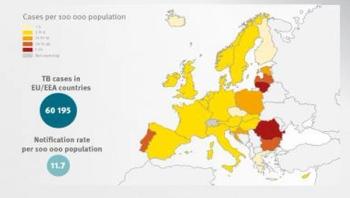
New data released today by the European Centre for Disease Prevention and Control (ECDC) and the WHO Regional Office for Europe ahead of World TB Day show that new tuberculosis (TB) cases and deaths in the 53 countries of the WHO European Region declined each year by 4.3 percent and 8.5 percent respectively between 2011 and 2015.

An extensive review of research on wild primate social networks and parasites underscores the importance of super-spreaders, or central individuals that play an outsized role in transmission of a pathogen. Trends in Parasitology published the review, the first comprehensive synthesis of environmental and theoretical studies of disease dynamics in wild primate species -- most of which are now threatened with extinction.






The authors compared the CD4+ T-cell counts and HIV-1 RNA viral loads of 383 patients who were either mono-infected with HIV or co-infected with HTLV-1/HIV. They confirmed that co-infected patients were more likely to have higher CD4+ T-cell counts prior to treatment initiation with no immunologic benefit--a result that has been well documented in scholarly literature. Any differences in the CD4+ T-cell counts were expected to disappear once the co-infected and mono-infected patients began to fail their antiretroviral therapy (ART) regimens.Instead, the authors found that HTLV-1/HIVco-infected patients continued to have elevated CD4+ T-cell counts, on average 115 cells/μL higher than their HIV mono-infected counterparts, over the two-year study period. But when the authors compared the HIV viral loads over the same period, they could not find any statistically significant difference between the two groups of patients. HIV viral load testing is currently recommended by the World Health Organization (WHO) as an accurate strategy for monitoring a patient's response to ART. Nevertheless, CD4+ T-cell testing is often used in resource-limited settings because it is perceived to be more affordable. The continued use of CD4+ T-cell testing has implications for the clinical management of HIV-positive patients. Results from the present study suggest that HTLV-1/HIV co-infection could delay the identification of patients who are failing ART with adverse consequences.Against this background, recent scientific research has begun to show that HIV viral load testing can be both an accurate and cost-effective treatment monitoring strategy. The present study was based in the KwaZulu-Natal province of South Africa and used patient data from a poor and rural community at the epicenter of the global HIV epidemic.Source: Bentham Science Publishers